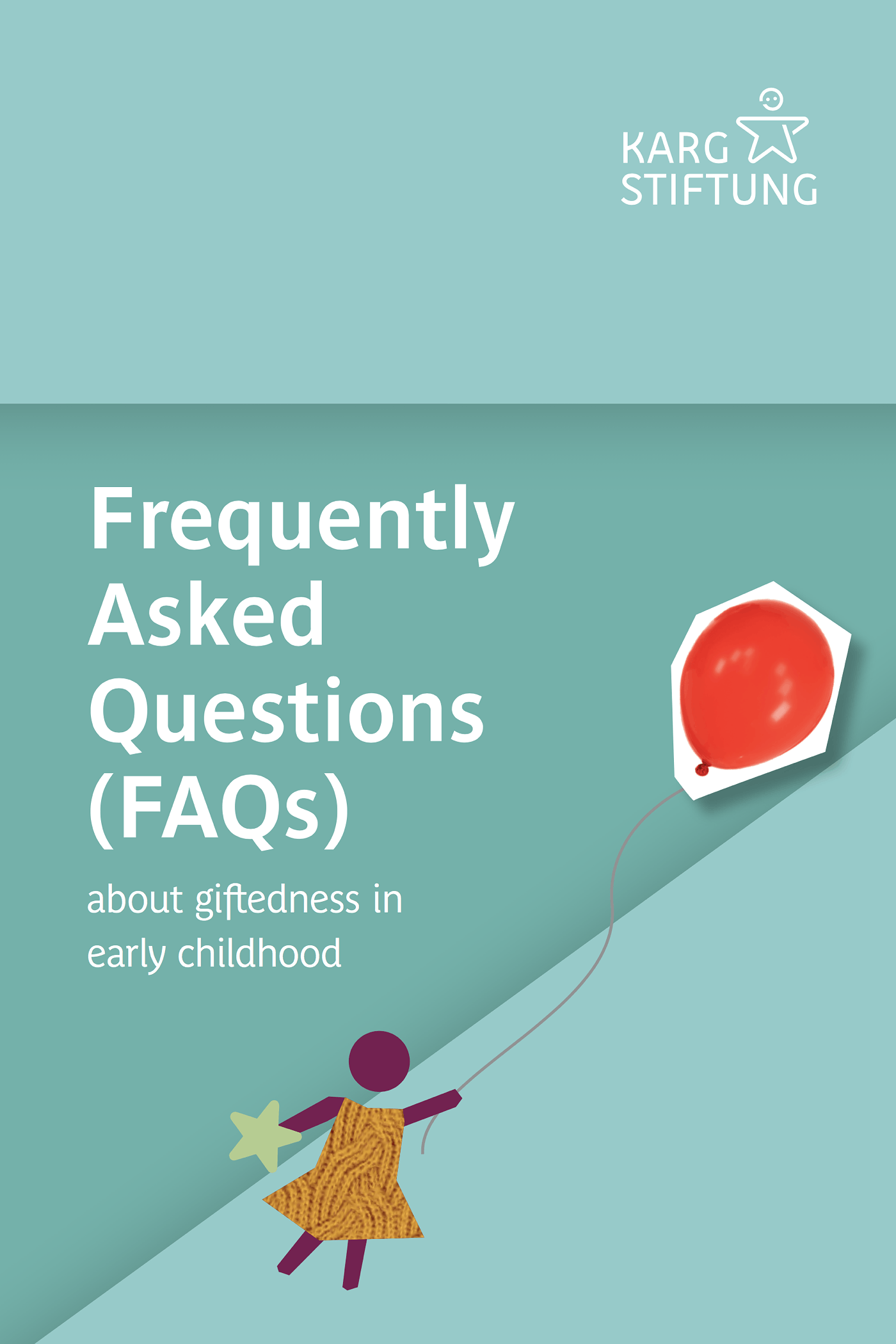Frequently Asked Questions (FAQs) about giftedness in early childhood
What can Kitas do to encourage and support gifted children?
Fostering and providing encouragement to young gifted children in the Kita is based on the principles of individualized support. Individualized support is an overarching term for all actions on the part of early childhood educators with the goal of encouraging and supporting each individual child in his or her development and learning, while taking into account the unique characteristics of the child and his or her life situation. This includes discovering the child’s potential and identifying his or her learning needs using early learning diagnostic assessment. Further measures involve creating both the learning environment and the learning processes together with the child so that he or she can learn and grow in the best possible way in accordance with his or her educational and developmental level. Individualized support provides the necessary framework to allow children to develop their abilities.
In terms of the promotion of giftedness, individualized support is naturally also applied by early childhood educators for the identification and further development of gifted children. Accordingly, supporting the development of children with high ability is not an isolated educational method or specific didactical approach, but rather a way of responding to the diverse abilities that children bring with them in a pedagogically appropriate way.
Supporting gifted children means helping them to discover their full potential and to develop their talents. In this sense, gifted education requires an awareness of specific learning needs of individual children with high abilities and actively taking these needs into account when planning the learning environment and providing learning and developmental support. The focus is always on a positive and healthy development of the child’s personality: Children are thus able to become aware of their own talents and abilities and to develop a positive self-image.

